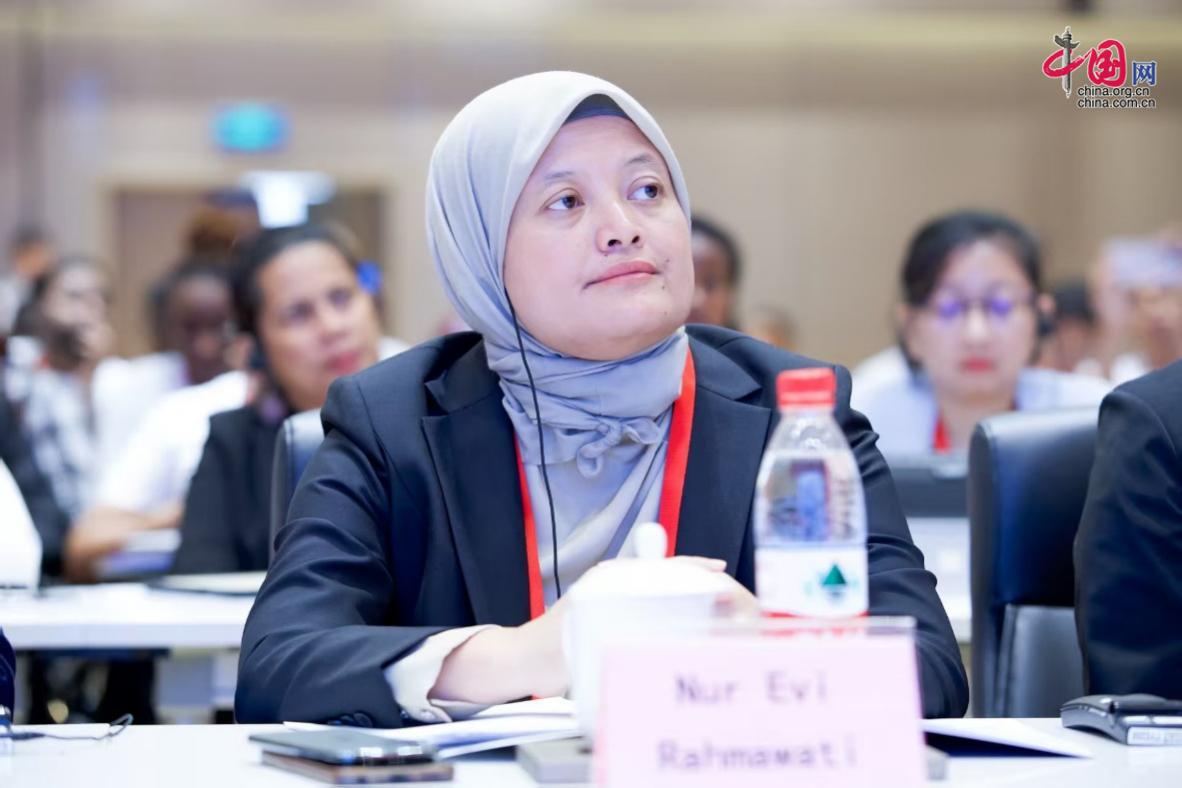Minister Counsellor of the Embassy of Indonesia in China calls for stronger maritime cooperation to advance sustainable development
 0 Comment(s)
0 Comment(s) Print
Print E-mail China.org.cn by Liu Mengya, October 31, 2025
E-mail China.org.cn by Liu Mengya, October 31, 2025
A special parallel event concurrent with the Sixth Conference on Think Tank Science and Engineering known as the Scientific Dialogue on “Marine Science & Technology and Industrial Development with Joint Contribution and Shared Benefits” was recently held in Beijing. Nur Evi Rahmawati, minister counsellor of Tourism, Creative Economy, and Public Diplomacy Embassy of the Republic of Indonesia in China, was in attendance and stated that Indonesia has been advancing marine energy development in recent years at the event and that the nation is ready to expand maritime cooperation with China.

Nur Evi Rahmawati, minister counsellor of Tourism, Creative Economy, and Public Diplomacy Embassy of the Republic of Indonesia in China
Rahmawati noted that as a nation consisting of around 17,500 islands and with ocean covering 81% of its territory, Indonesia is the world’s largest archipelagic country. She also observed that the sea is a key source of food, energy, and cultural identity in addition to being a channel for trade and cultural exchange. She emphasized that Indonesia began participating in the Belt and Road Initiative in 2013 with the intention of strengthening cooperation with China, promoting sustainable development, and engaging in the sharing of technology and human resource development. Rahmawati stated that Indonesia has been pursuing energy transition in recent years and that the country has placed special focus on the development of various forms of marine energy, such as offshore wind power and floating solar power systems.
She mentioned that Indonesia is focusing on three areas with regard to the optimization of its marine energy resources – marine energy infrastructure development in its remote eastern regions, technological research and development and especially early-stage marine energy technologies that require cooperation and technological transfer with countries such as China, and human resource development. She also noted that Indonesian research institutions are currently pursuing AI- and satellite-powered ocean monitoring with China and other international partners.
The minister counsellor remarked that Indonesia is prioritizing downstream marine industries in addition to focusing on energy development as part of its broader marine resource strategy. She stated that, possessing rich natural resources and biodiversity, such as mangroves, tuna, and seagrass, the country plans to boost economic development through value-added industries while simultaneously supporting climate action, including coral reef conservation and mangrove restoration, in order to enhance biodiversity.
Rahmawati added that several Indonesian universities are already engaging in deep-sea research, island biodiversity research, including projects pertaining to the assessment of biodiversity loss, and exploration of methods of reducing risks related to earthquakes and other natural disasters with Chinese institutions and that Indonesia hopes to engage in further cooperation in these areas.
“These collaborations will benefit Indonesia, China, and other countries in the entire region,” Rahmawati concluded.
The dialogue was organized by the Institutes of Science and Development, Chinese Academy of Sciences (CASISD), the Chinese Association of Development Strategy Studies (CADSS), and the “Bulletin of Chinese Academy of Sciences.”


